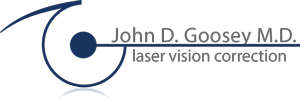Because the health of our cornea is crucial to overall vision, it’s a great wonder we have cornea specialists. The cornea is the front portion of the eye that plays a vital role in how well we see. This clear, protective outer layer is responsible for approximately 65% of the eye’s focusing power. In conjunction with the sclera, it is also responsible for protecting against dirt, germs, and other particles that can harm the eye’s more delicate components.
Though most people see an eye doctor for vision exams and prescription lenses, there may be times when vision health is at risk; in those cases, it may be time to consider seeing a cornea specialist. Diseases and injuries to the cornea can affect vision in a variety of ways. Minor problems, such as scratches, often resolve quickly; yet, when problems are more severe, permanent vision damage can occur.
What is a Cornea Specialist?
This type of specialist is a doctor of ophthalmology who has undertaken a fellowship in addition to ophthalmology training, that allows him or her to learn the latest techniques and research in corneal medicine and surgery. These specialists may work on their own, or as part of a larger ophthalmology practice. When specializing in corneal medicine, such individuals commonly pursue ongoing education to remain abreast of the latest innovations, surgical techniques, and developments in the field.
When to See this Eye Specialist
Symptoms such as blurred vision, excessive tearing, eye pain, redness, headaches, nausea, and sensitivity to light, all can signal a need to see a cornea specialist. Those signs, however, can be symptomatic of other medical situations not involving the cornea, so it is important to rule out other conditions before proceeding. Usually a primary physician, optometrist, or general ophthalmologist will be able to help you determine if, and when, a consultation is needed with this unique kind of eye surgeon.
Cornea specialists will have knowledge beyond that of a general ophthalmologist, can provide you with more thorough examinations and testing targeted to your potential problem, and is positioned to better explain your options. Depending on the diagnosis, your specialist will recommend medication or surgery to alleviate your problem, and prevent any further damage to your cornea and your eyesight.
Consider Consulting with Dr. Goosey
Suffering from dystrophies are among the most common reasons for visiting and seeking the advice of a cornea specialist. Common dystrophies that can affect eyesight are keratoconus, which is a progressive thinning of the cornea, Fuchs’ dystrophy, lattice dystrophy, and map-dot-fingerprint dystrophy.
Dr. John Goosey of Houston Eye Associates has specialized in corneal surgery and related vision issues for decades. Request an appointment online, or call 713-234-6134 for more information.






